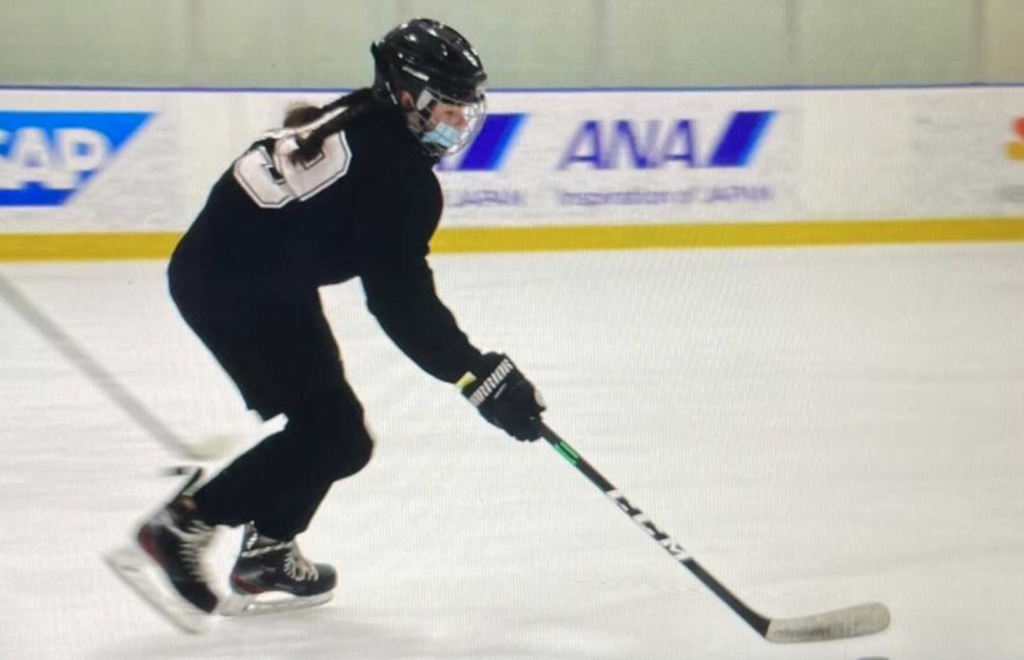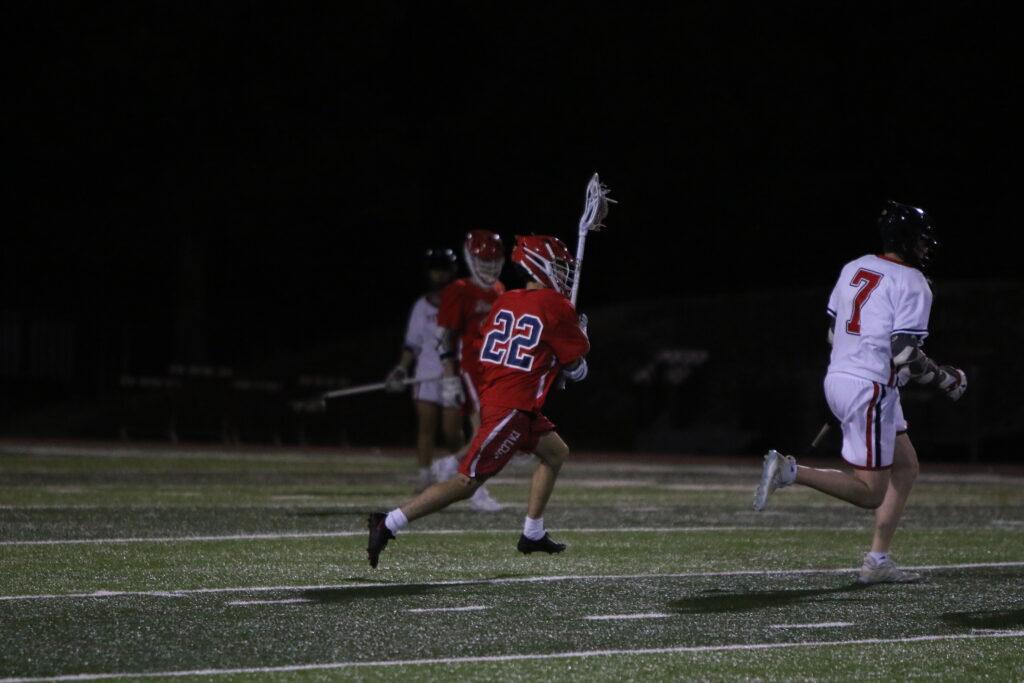The sixth-period bell blares on Friday at 2:35 p.m, signaling the end to a long week of school. Most students heave sighs of relief as they prepare to head home to relax or hang out with friends.
Junior Jenny Campbell, however, sometimes rushes to the San Jose Airport to board a flight to a different state to compete as a player on the Jr. Sharks ice hockey team. She is one of the only SHS students who does this; sophomore Matthew Zhang, a player on the Golden State Elite Hockey team, also travels for tournaments.
Currently, Campbell is a member of the 16U (16 and under age division) team for the Jr. Sharks, which is part of the PGHL (Pacific Girls’ Hockey League) and the CAHA (California Amateur Hockey Association) leagues. Campbell currently plays the forward, mainly right wing position on her team, which is an “extremely versatile” position that requires mastery in skating, stick handling and control, shooting positioning and teamwork.
“You always have to be on your toes and thinking about the next play or where the puck will be,” Campbell said. “That’s what I love about ice hockey. The fast-paced and spontaneous nature of ice hockey drew me in immediately.”
In her 5 years of playing, Campbell has accumulated honors including leading scorer, MVP and team captain of her Jr. Sharks team.
As a team, the Jr. Sharks won a championship at the MLK Classic Youth Hockey Tournament in the 2018-19 season, during Campbell’s 14AA year. Her team has yet to win championships at their tournaments for this season.
“We are currently working hard for a big tournament during the spring in Canada that we’re aiming to win,” Campbell said.
Six days a week, Campbell attends 2-hour-long team practices located at the Oakland Ice Center, a 50-minute drive from Saratoga. Although the San Jose Ice Center is closer, Campbell explained that it is difficult to get ice time in the San Jose location’s rink because it is so popularly used for figure skating, ice hockey or public skating by people of all ages.
This warrants her team’s frequent commute to Oakland to “maximize the amount of time we have to work with each other,” Campbell said.
Outside of her designated team practices, Campbell trains every day in her backyard with her own net. At least twice a week, Campbell goes to the rink to either practice shooting the net individually or to train together with teammates.
Despite the heavy hours of practice, Campbell said her efforts leading up to her performance on the ice can be “easily undermined by wardrobe malfunctions” during a game; if one piece of equipment malfunctions, the athlete’s performance is hindered. Campbell recalls that one time her skates were sharpened off-center so she could hardly skate the entire game.
For games, Campbell said she usually travels out of state five to seven times per season. However, she only flew out of state four times this season due to pandemic-related tournament cancellations.
Even though traveling for games is highly time-consuming and tiring, Campbell noted that “the traveling aspect meshes the team together due to the large amounts of time we spend with each other.”
The camaraderie with her teammates both on and off the ice are some of her most cherished memories, “especially those times in the locker room when we blast music.”
Campbell said her strong friendships created through the sport even extend beyond her own teammates; one of her best friends happens to be from a Las Vegas team.
Although Campbell already travels so frequently as a junior, she said she will be commuting even more during her senior year.
“My dream is to get recruited to play college hockey, and I plan on playing for two travel teams next season to maximize my exposure,” Campbell said.
Campbell had this dream ever since she first started playing ice hockey at age 12. Before she officially started, Campbell learned to ice skate when her mom brought her and her siblings skating for fun. Because she and her siblings loved skating so much, her family would frequently visit the local San Jose Ice Center.
One day when 12-year-old Campbell was skating recreationally, an ice hockey coach noticed her and asked to coach her privately so that she could play competitively.
Despite this, Campbell said her parents were initially strongly against her interest in ice hockey.
“When I first wanted to play, my dad made me sign a contract that if I got injured once 一 regardless of how minor it was 一 I would have to quit,” Campbell said.
She said her dad also initially forbade her from playing on a co-ed team, which is a team open to both males and females. Eventually, Campbell’s parents relented, seeing that co-ed was in fact the most common form of ice hockey teams. At age 12, Campbell officially started ice hockey.
Having frequently skated at a young age, Campbell explained starting hockey was completely natural for her because “muscle memory kicked in.”
The first team Campbell ever competed on was a competitive non-travel co-ed team “with no other girls, sadly.” A year later, Campbell joined the Junior Sharks co-ed travel team program affiliated with the San Jose Sharks Ice Hockey Team. Since then, she has worked her way up to the Jr. Sharks 16U team that she plays in today.
Aside from ice hockey, Campbell is also a key player on the SHS girls’ varsity basketball team as well as a violinist in the Saratoga Strings Symphony Orchestra, the highest-level orchestra ensemble at SHS. Campbell explained that she regularly faces time conflicts between the three commitment-heavy activities.
“When orchestra, basketball and ice hockey conflict, I can only pick one activity to prioritize over the others, which can really upset my coaches and teachers sometimes,” Campbell said.
For example, Campbell has had to miss important basketball games or practices and orchestra concerts due to out-of-state ice hockey tournaments, leading her to “feel guilt for not being able to help out my team or group.”
However, Campbell said her busy schedule forced her to develop higher efficiency — especially in her academic work so she could get a sufficient amount of sleep — and better time management skills because she has to keep constant track of her schedule and notify her coaches or teachers in advance.
Despite the pressures that come with juggling commitment-heavy activities, Campbell said she still holds a passion for ice hockey.
“[Ice hockey and the commitment] does get extremely hard,” Campbell said. “But I wouldn’t have it any other way because I’m proud to be an ice hockey player.”



























